Canadian Finns / Thunder Bay
Not quite Finnish
Waves of 20th-century immigrants from Finland have made Thunder Bay the most Finnish city beyond the Baltic. Can the next generation hold on to the sauna spirit?
On this snowy Northern Ontario street there are no pedestrians. It is minus 25c, the wind is harsh and those who need to travel somewhere are sensible enough to use a Jeep. Bay Street could be pretty much any ordinary downtown street in Ontario, were it not for a few peculiarities. The Finlandia Club, a wooden building resembling a castle, is the first clue. Then there is the Finnish bookshop, the Finnish butcher, the two Finnish bakers, the grocery shops selling salty liquorish salmiakki and dark rye ruisleipä and, of course, the sauna with a sign claiming it is “Finn-tastic”. This is Thunder Bay, home to the largest Finnish community outside of the Nordic region. They came in waves, the first arriving more than a century ago chasing opportunities for jobs in railway construction and forestry. The next wave arrived after the 1918 Finnish Civil War when those on the losing side had to find new homes. The Finlandia Club was built – and originally named the Finnish Labour Temple – as a centre, a meeting point, a place for shared activities between Finns to help them deal with their longing for home.
Once a community takes root, migration can take on a life of its own. Finns continued to cross the Atlantic after the Second World War. Finland was struggling, Canada thriving. “It was easy to come here in the 1960s and 1970s. The salaries were good and there was a lot of logging work available,” says Eija Niivilä, the Finlandia Club’s executive director. Despite her typical Finnish looks – high cheekbones and blonde hair – you can’t help noticing that there is still something very North American in the way she speaks and laughs. There is no Finnish gloominess. Niivilä moved to Thunder Bay with her father in the 1970s. Despite spending her days working with the Finnish community, she calls Canada home. The attraction of Canada for her and the other “Finlanders”, as they say in Thunder Bay, hasn’t only been work opportunities and better salaries. “Many say that here you can feel more free, there are more different people, you don’t feel like you have to look and behave like your neighbours. People are more lenient.” Exploring Thunder Bay, one realises it wasn’t a coincidence that so many Finns found their way here, over 4,000 miles away from their homeland. The climate of Ontario is similar to Finland, the sunlight is cold and bright, and even the birches look familiar to Finnish eyes. And there’s another geographical factor in common with Finland: Thunder Bay is isolated – the nearest big city, Duluth, Minnesota, is a five-hour drive away. Those attractions have begun to wane. Niivilä belongs to the last wave of Finnish immigration.
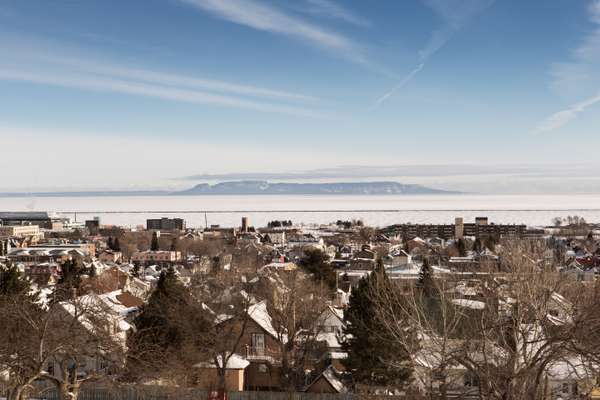

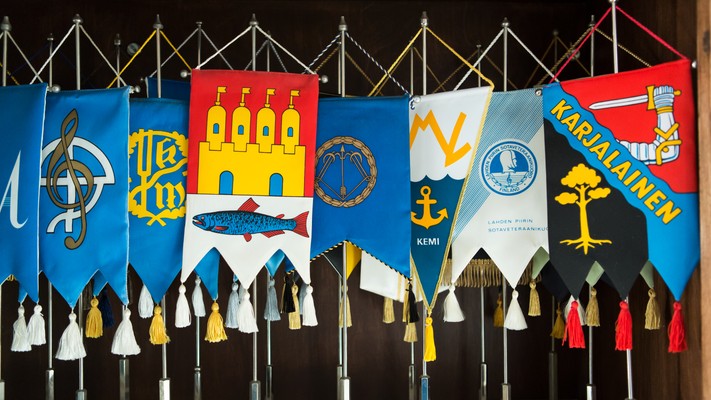
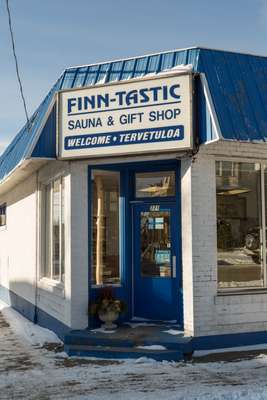
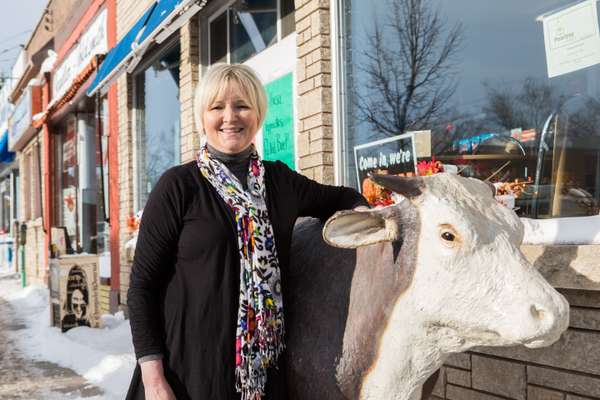
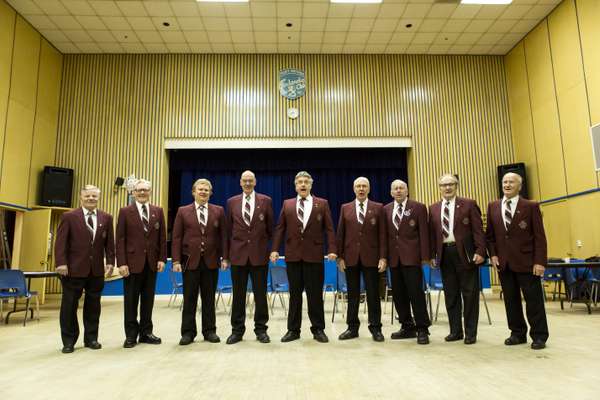

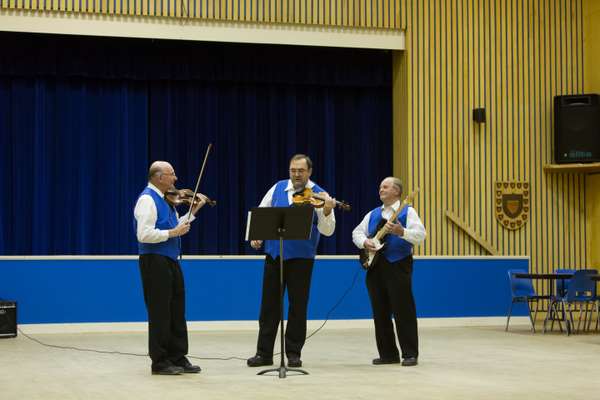
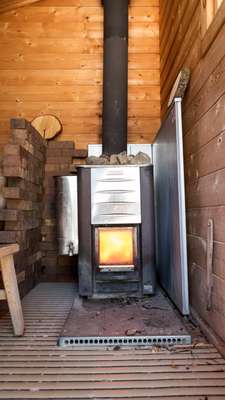

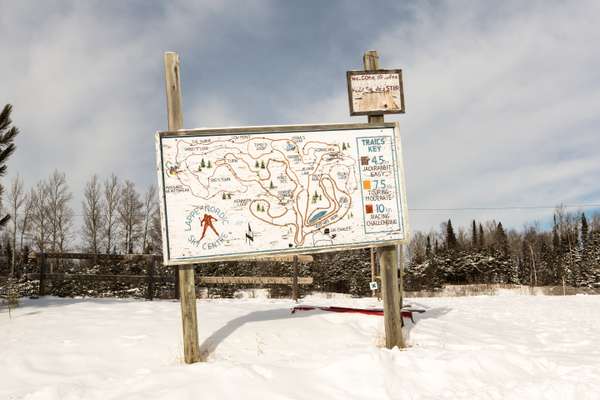
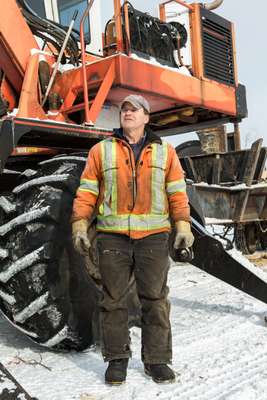


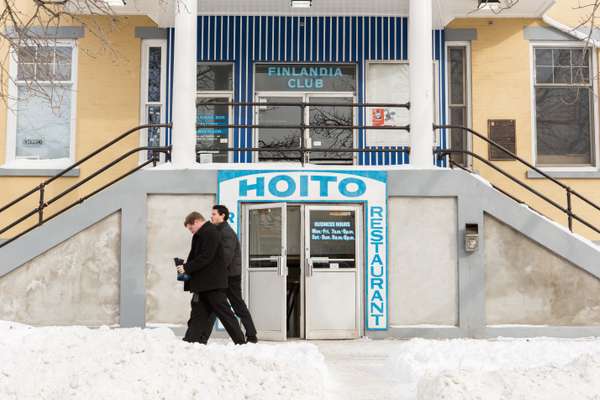


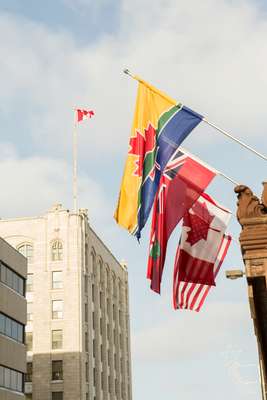
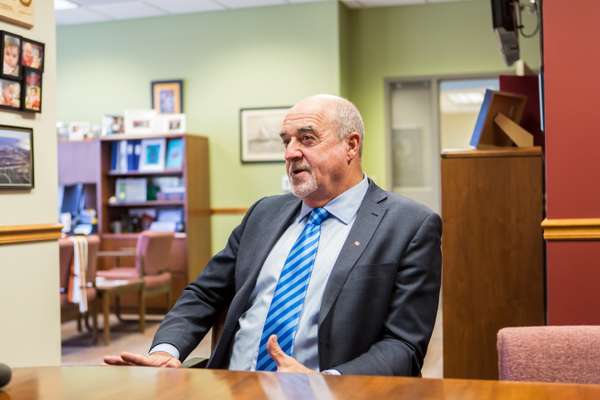
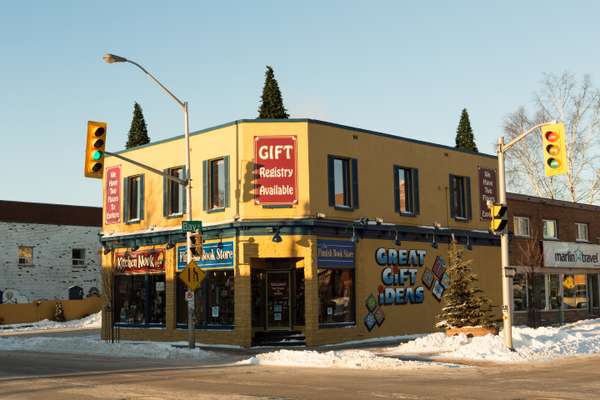
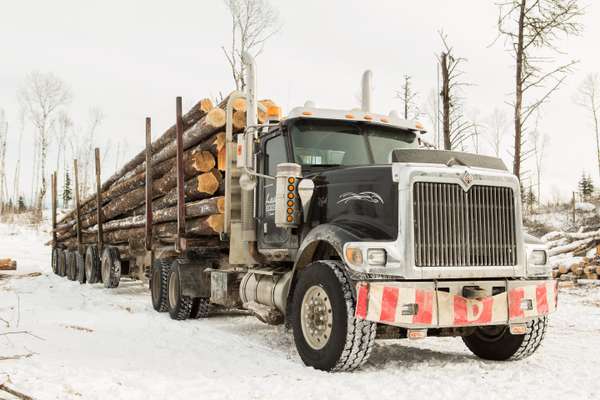




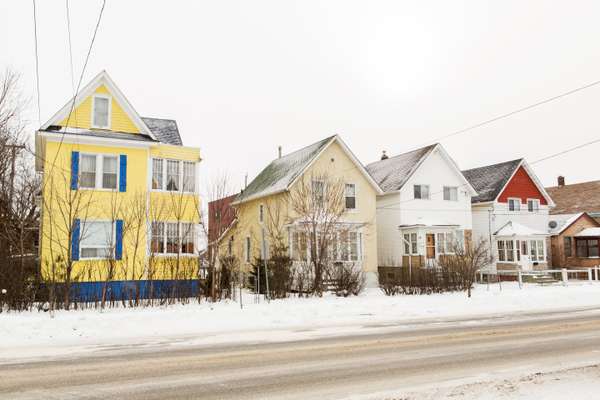
“All the kids in class were Finnish, the teacher was Finnish and everyone spoke Finnish – except for when the inspectors came for a visit,” she adds with a smile. Back then there were even a few chartered flights between Thunder Bay and Helsinki. In an old photo in a history book about Thunder Bay’s Finns, you see them dressed in their smartest suits, sat on a plane bound for Helsinki. Such flights have not taken place for decades. The Finnish community is getting older. The Finnish school doesn’t have nearly as many pupils as it used to. The folk dance group Kiikurit, which meets at the Finlandia Club, no longer has classes for children. The average age of the Otava male choir is now somewhere north of 60. The Finnish theatre group no longer exists – unfortunately its elderly actors were beginning to forget their lines. Thunder Bay’s local newspaper in Finnish, Canadan Sanomat, has also been lost, merged with another Toronto-based paper. Many Thunder Bayers are frustrated that they get their news in Finnish a couple of days later than they used to.
The connection between Thunder Bay’s Finnish community and Finland is also getting weaker. Young Canadian Finns don’t see the need to participate in the activities at the Finlandia Club. Most have never been to Finland, many see themselves foremost as Canadians and few even speak Finnish. For the community as a whole, it has become a question of survival, says Pasi Pinta, one of Thunder Bay’s most active Finns. “What we may see happening here in the future is what has happened in many American cities,” says Pinta. “The communities go into a deep sleep for a generation or two. Still, almost always there are new generations who start asking questions about their roots. They do their research and start bringing the culture back. I hope in Thunder Bay we can skip that deep sleep and find ways to make this culture relevant for new generations.”
The Finnish restaurant Hoito on the ground floor of the Finlandia Club is where you see the new generation of Finns. Many of them are working tables, just as their parents and grandparents did before them. Some of them see themselves as more Finnish than others. A question about nationality makes them pause. “What the Finnish roots mean for the people really varies. I think we’re all proud on some level but not all of us even think about our background. I know for sure I am proud,” says waitress Suvi Sorri, whose mother also works in the restaurant. “I always say that I am 100 per cent Finn, just born in Canada. And in all sports events I support foremost Finland, and Canada only after that.” Where the young Finns seem somewhat ambivalent about their Nordic roots, the older ones still have a passion for their heritage. You can’t help noticing the national ethos when the male choir starts singing the Finnish national anthem. But the Finland they love may be there no more.
“Many Finns have not been back to their homeland for decades,” says Aarno Peura, owner of the grocery store Scandinavian Delicatessen. “They still live in their imagination thinking that Finland is what it used to be in the 1970s.” You can’t help feeling that many are mentally attached to what Finland used to be before Nokia, the European Union and the spread of international chains into the Nordic nations. You don’t get a sense of that in Finland anymore but you do on Bay Street. Sometimes Thunder Bay feels more Finnish than Finland itself. The nature of the Finnish community is gradually changing as Finns blend into Canadian society, but the Finns have definitely left their mark in Thunder Bay. According to a rough estimate, there are as many as 15,000 in the city of 115,000 people. Even more importantly they have contributed to the psyche of Thunder Bay. “Here you get the Finnish melancholy that you won’t necessarily find elsewhere in Canada,” says Pinta. But it’s not all melancholy. Things are slowly starting to look brighter again. Thunder Bay has benefited from Canada’s mining boom – the mayor, Keith Hobbs, expects as many as nine new mines to open around Thunder Bay with more to come. The mayor is serious when he estimates that during the next 10 years the city’s population may grow by 20,000 people, almost one fifth of the current population. He is already getting prepared to welcome a significant number of immigrants in the future. Who knows, maybe the Finlandia Club will get a new, fresh wave of members.
Nordic exposure
There are an estimated 1.3 million people with Finnish heritage outside of the borders of Finland. Aside from Thunder Bay, other large Finnish communities can also be found in North America: in Toronto, New York, Florida and California. In Europe, Stockholm is in the top spot when it comes to the number of Finns that live and work there. Finns have also taken a liking to Australia, with Sydney and Brisbane boasting large Finnish populations. There are, however, some new centres to keep an eye on – Greece, Turkey and Thailand are the new favourite destinations. Finnish retirees are moving to the Costa del Sol – Fuengirola in particular. The last big wave of Finnish emigration ended in the 1970s when Finland became more prosperous. European Union membership, which allowed freedom of travel throughout the EU, gave Finnish emigration another boost. Nowadays Finns move to European capitals such as London and Brussels; they tend to be more educated and they often later return to their home country.


